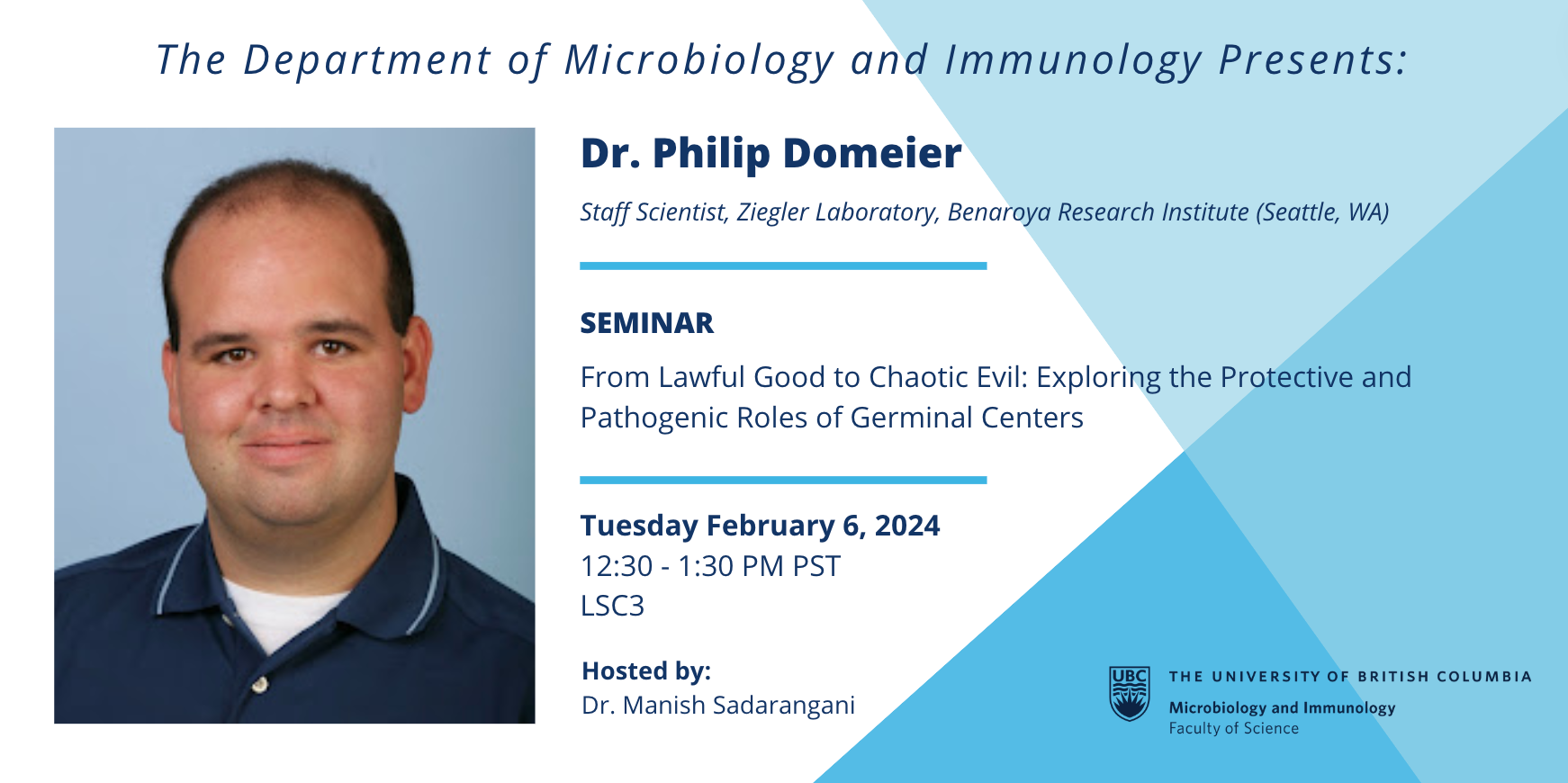
Seminar Title: From Lawful Good to Chaotic Evil: Exploring the Protective and Pathogenic Roles of Germinal Centers
Seminar Abstract: Germinal Centers are dynamic immune microenvironments that develop in secondary lymphoid organs during infection, vaccination, or active autoimmune inflammation. During immune responses against pathogens, germinal centers optimize antibody-producing B cells through an iterative process of somatic mutations and affinity-based selection to optimize antibody affinity to pathogens. However, defects in B cell selection can limit the efficiency of vaccination or cause in the production of self-reactive antibodies. In this seminar, I will cover two projects that explore vaccine-induced and autoimmune germinal centers. In part 1, I will describe how the alarmin cytokine thymic stromal lymphopoietin (TSLP) regulates germinal center responses at the global and cell-specific level. More specifically, blockade of TSLP receptor signaling in CD4+ T cells or B cells causes distinct germinal center responses. In part 2, I will describe a recently submitted project that explores an autoimmune-driving isoform of Foxp3, which lacks the second coding exon of the gene (called FOXP3ΔE2). We found that Foxp3ΔE2-expressing mice generated augmented germinal center responses and higher titers of self-reactive IgE and IgG1 antibodies that target self-antigens in the skin. Collectively, these projects define new avenues of inquiry and potential therapeutic targets for the treatment of autoimmunity and/or augmentation of vaccine responses.
LSC 3 (Life Sciences Institute - 2350 Health Sciences Mall) MBIM itsupport@microbiology.ubc.ca America/Vancouver publicSeminar Title: From Lawful Good to Chaotic Evil: Exploring the Protective and Pathogenic Roles of Germinal Centers
Seminar Abstract: Germinal Centers are dynamic immune microenvironments that develop in secondary lymphoid organs during infection, vaccination, or active autoimmune inflammation. During immune responses against pathogens, germinal centers optimize antibody-producing B cells through an iterative process of somatic mutations and affinity-based selection to optimize antibody affinity to pathogens. However, defects in B cell selection can limit the efficiency of vaccination or cause in the production of self-reactive antibodies. In this seminar, I will cover two projects that explore vaccine-induced and autoimmune germinal centers. In part 1, I will describe how the alarmin cytokine thymic stromal lymphopoietin (TSLP) regulates germinal center responses at the global and cell-specific level. More specifically, blockade of TSLP receptor signaling in CD4+ T cells or B cells causes distinct germinal center responses. In part 2, I will describe a recently submitted project that explores an autoimmune-driving isoform of Foxp3, which lacks the second coding exon of the gene (called FOXP3ΔE2). We found that Foxp3ΔE2-expressing mice generated augmented germinal center responses and higher titers of self-reactive IgE and IgG1 antibodies that target self-antigens in the skin. Collectively, these projects define new avenues of inquiry and potential therapeutic targets for the treatment of autoimmunity and/or augmentation of vaccine responses.

